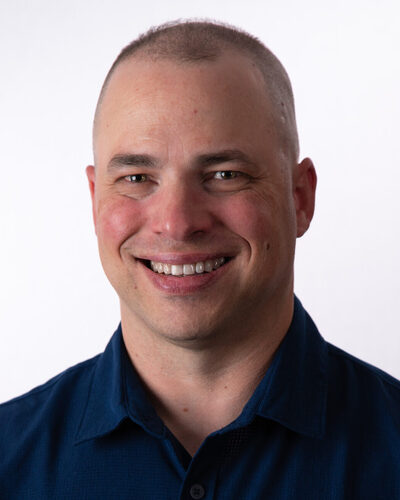Posted on May 22, 2024 by Wendy Frost

A military member shakes hands with a physician
The study, “How Power Shapes Behavior: Evidence from Physicians,” appeared this month in Science magazine.
Utilizing data from the U.S. Military Health System, Stephen Schwab, an economist, and his colleague, Manasvini Singh, an assistant professor at Carnegie Mellon University, analyzed data from 1.5 million emergency department visits to examine how variations in the power differential between doctors and their patients impacted health care outcomes.
“The military is a perfect testing ground to examine this issue due to the hierarchy of rank,” said Schwab, assistant professor of management in the Carlos Alvarez College of Business at UTSA. “Patients come in wearing their rank, so it is easy for physicians to identify who is ranked above and below them. This issue of how care is delivered, and the equity of care and power in society is important.”
Schwab and Manasvini’s research addressed several questions. First, how does a power differential impact patient care? Secondly, how are patient outcomes affected when a physician cares for both high- and low-power patients. Finally, they studied how gender and race affect this power dynamic.
“We found that when the patient was higher ranking than the physician, they received around 3.6% more resources,” said Schwab, a retired lieutenant colonel in the U.S. Army. “If physicians are allocating extra effort with the higher-ranked patient, what happens to other lower-ranking patients that they are seeing? We observed that lower-ranking patients received less care when there was a higher-ranking patient being seen by their physician, and it had negative health outcomes for them.”
Expanding their research to not only include rank but also account for differences in race and gender, the team found compelling results. Overall, higher-power individuals still received more effort. White physicians gave higher-power black patients similar levels of effort as lower-power white patients, while black physicians only responded to the power of black patients. Female physicians responded less to the patient’s gender for lower-power patients, but increased their efforts when treating higher-power female patients. Surprisingly, all female patients received more effort from male physicians with lower-power female patients receiving about the same resources as higher-power male patients.
“Doctors are humans, and they suffer from the same biases that all humans do,” said Schwab. “We believe that power is a combination of many different characteristics, but in this study an individual’s rank carried the greatest weight. In a civilian context, other factors may be weighed differently.”

Schwab, whose research interests include health care management, health economics, organization theory and labor economics, shared that these biases could be overcome if organizations develop policies, conduct training and increase awareness of these issues to promote better care for all patients.
Health care has been a long-term passion for Schwab. He began working as an EMT while in college, then later served in the medical service core in the Army. Obtaining advanced degrees in economics and health care management through the military, he became chief financial officer for the Walter Reed Army Institute of Research and for Brooke Army Medical Center.
“Health care is so impactful,” he said. “It can impact one’s ability to participate in the labor force as well as a person’s mental health. Power dynamics can create disparities within society, and we are looking at solutions to reduce those disparities.”
Schwab also relishes the opportunity he has to make a difference by teaching at UTSA. Teaching undergraduates, graduate students and executives, he values UTSA’s mission of helping first-generation students follow their dreams. At UTSA, 45 percent of students will be the first in their families to receive a bachelor’s degree.
Schwab notes that his study with Manasvini has broader implications than the specific questions that they studied.
“Individuals can have more power than they realize,” he concluded. “People need to be cognizant of how they are wielding that power.”

